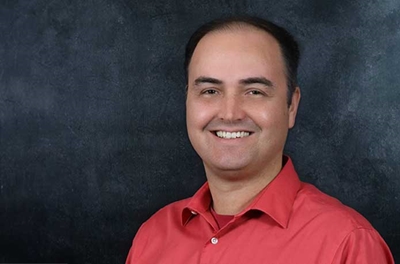On the Frontlines: The Quixotic Nature of Independence
Blogs Jon Taber, CIA, CPA, CFE, CFF Jan 03, 2024

Miguel de Cervantes’ “Don Quixote” is a literary masterpiece. Written over 400 years ago, the novel describes the adventures of Alonso Quixano, a hidalgo, who, nearing the age of 50 and due to lack of sleep and an obsession over chivalry romance, becomes Don Quixote. A knight in pursuit of adventures. One of Quixote’s most famous undertakings is attacking windmills that he believes are ferocious giants. The fight symbolizes pursuing illusory objectives.
It prompts us to consider — what windmills do we fight in our profession? Are independence and objectivity our giants?
I posed the question to the global internal audit community. Are independence and objectivity an illusion? Should they be de-emphasized? Or are they a good but hard-to-achieve goal? Or, better yet, a good and achievable goal?
The survey attracted a diverse range of respondents, including various levels of experience and sectors within the profession. Perhaps not surprisingly, 64% of the community viewed independence and objectivity as a good AND achievable goal and 26% saw it as a good but hard to achieve goal, while a minority viewed the two as something to be de-emphasized (5%) or a complete illusion (5%).
The overwhelming majority also made their views clear by commenting on the post. One professional incredulously wrote: “OMG. Who on earth voted for complete illusion and to be de-emphasized? What audit universe do these people live in?”
What universe do they live in?
Eager to find out and intrigued by those in the minority, I reached out to three professionals who responded ‘illusion’ or ‘de-emphasize’ to better understand their view. Unsurprisingly, it was not easy to get people to talk.
One professional responded to my query, ‘Are you interested in being interviewed for an article on the topic?’ with one of the shortest and most powerful words in the English vocabulary: No.
A second professional responded: “I don’t mind being interviewed, but can I stay anonymous?”
It is very telling that an interview on the topic either gets an immediate rejection or must be anonymized.
One respondent, Skip Langlois, courageously agreed to be interviewed without reservation. In Langlois’s view, independence and objectivity, while important to our profession, should be de-emphasized because they are often “used as a crutch” when someone is uncomfortable with doing something. Furthermore, Langlois points out that if an internal audit department is totally independent it “may not know what is going on in the organization, and that is a problem.”
In his view, if internal audit is sitting in a meeting where decisions are being made it does not necessarily mean those areas cannot be audited in the future. If there is that much of a concern over that scenario, an alternative solution is to have someone participate who will not be part of the review later. He also noted that in most organizations, the internal audit function is funded by the organization, which could have an effect on independence. Finally, he noted that because of close interactions with management necessitated by our testing, we develop relationships that could impair our objectivity. These are things that we as internal auditors need to be cognizant of — but understand that eliminating the possibility of bias will result in unintended consequences detrimental to the vital role we perform.
The anonymous respondent had an even stronger opinion on the topic: In her view, independence is a complete illusion. Why? Drawing from personal experience, she illustrated how deep involvement in an organization turned her into a subject matter expert, blurring the lines between auditing and operational roles. People would go to her for answers and opinions on what to do. Should she have turned those requests away? In her view, no.
The dilemma was further accentuated during COVID-19. According to Ms. Anonymous, at the height of the pandemic, there was pressure for her and her team to show the value they were bringing. They had two options: Keep auditing as normal or immediately help by contributing to the success of the company. They chose the latter and decided to pilot a program that automated billing accuracy. The program created exceptions for billings that were not consistent with policy, something that had been recommended to management for years but never acted upon. The pilot program had a direct effect on top-line revenue and showed an immediate return on investment. Ms. Anonymous had the expertise and know-how to make it happen, and in her view, why shouldn’t she? The circumstances called for a different approach.
During global events, like the COVID-19 pandemic, audit functions had to redefine their roles as we all faced unprecedented challenges. Is it quixotic to expect internal audit to not adapt to rapidly changing circumstances? Or is it a never-ending balancing act, where we adhere to principles while responding to change?
How about you? What would you have done if you were in her shoes?


